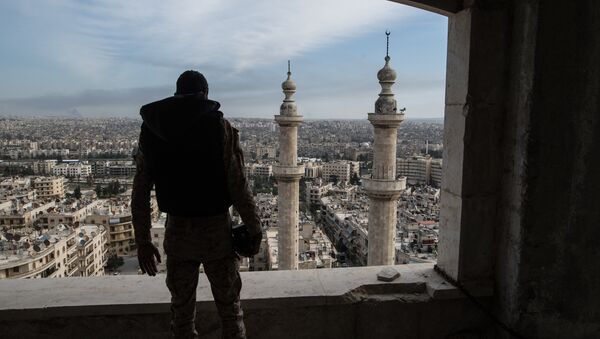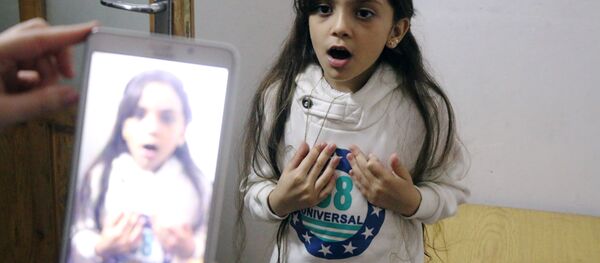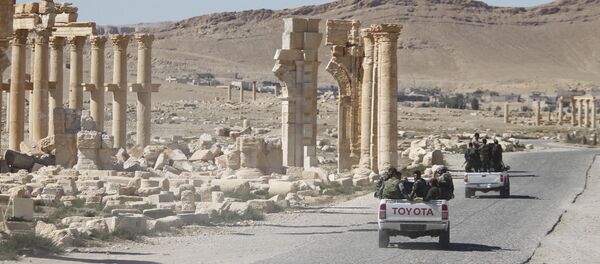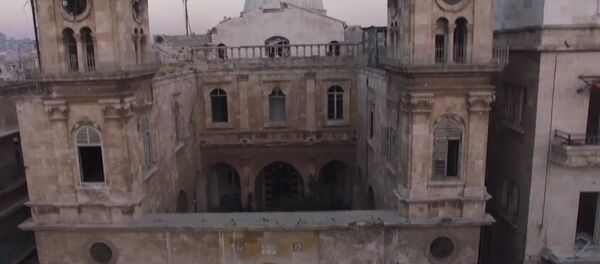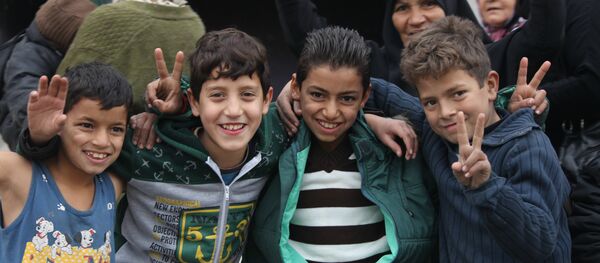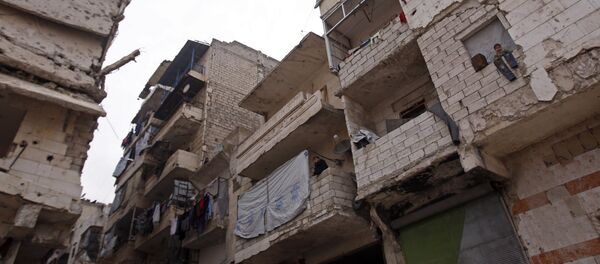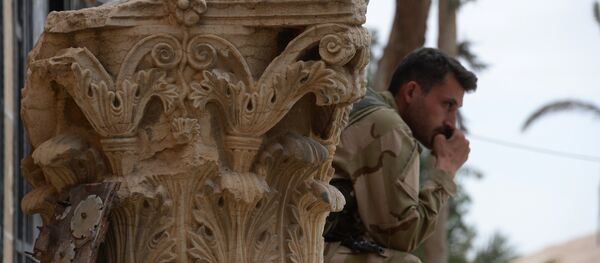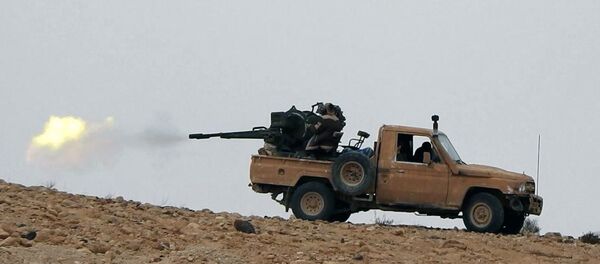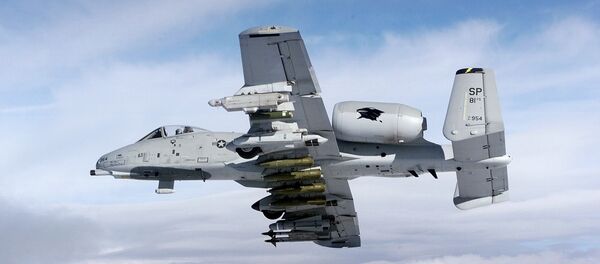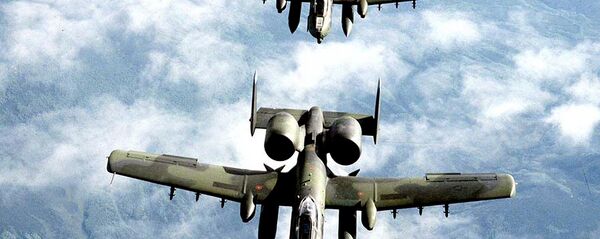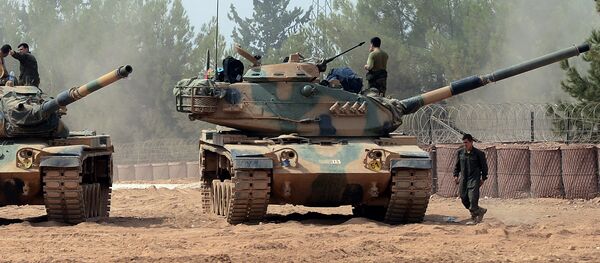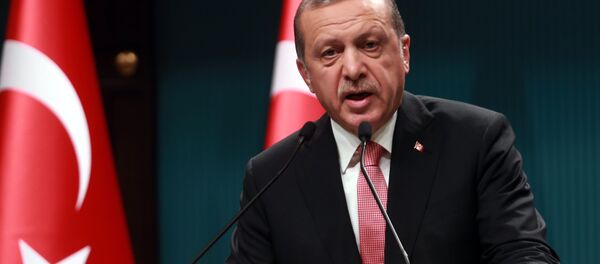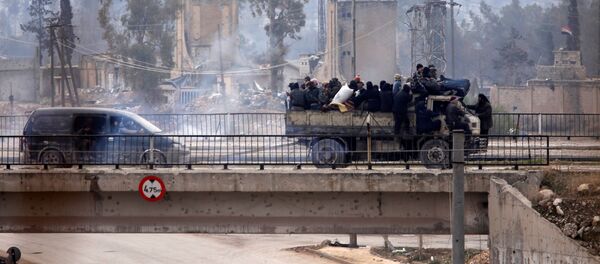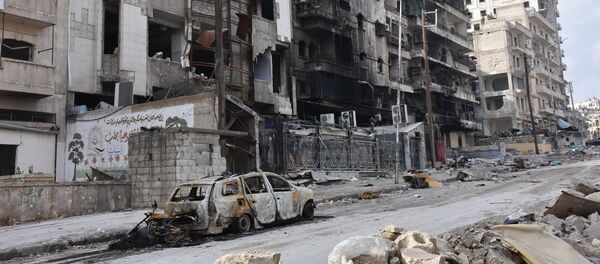Aleppo Liberation
Aleppo, Syria's second largest city which used to be the country's economic capital, has been mired in the civil war since August 2012 with the western part of the city has been controlled by the Syrian army while the eastern part was occupied by various Islamist and rebel groups, including al-Nusra Front terrorists.
The Syrian army and militia achieved a significant breakthrough in their fight against terrorists after the Russia-US-brokered ceasefire announced on February 27.
During summer, Aleppo was caught in fierce battles between the Syrian army and militants. In early August, the Syrian army blocked the major part of the militant forces in Aleppo.
On September 22, the government forces began a military operation in the eastern districts of Aleppo.
To avoid civilian casualties, the Russian Aerospace Forces and the Syrian Air Force stopped airstrikes in Aleppo on October 18.
On October 23, the Syrian army launched an offensive in the southern part of the city. The hostilities resumed after a three-day humanitarian pause announced to let civilians and militants leave the eastern part of the city. Terrorists refused to leave and threatened to execute civilians who wanted to flee.
Throughout November, the Syrian army gained considerable ground in eastern Aleppo, gaining control of approximately half of the territory from militants. According to the Russian Defense Ministry, by late November the government forces liberated over 40 percent of eastern Aleppo.
In December, Russia sent field hospitals, surgeons and medical equipment to Aleppo to help the residents.
On December 5, a mobile Russian military hospital was shelled in Aleppo, presumably by Syrian rebels. During the attack two Russian medics were killed and one was injured. Following the attack, Russian authorities said that Syrian rebels "had exact coordinates" of the hospital that means that those parties who support militants were also responsible for the deaths of Russian doctors. However, the US State Department denied giving coordinates of the Russian mobile hospital to the Syrian opposition.
During the battle for Aleppo, Russia had repeatedly contributed to establishment of humanitarian pauses in the city, all of which were undermined due to the UN humanitarian bodies’ inability to deliver aid and because of the militants’ attacks on civilians and the army. On December 8, the Syrian army suspended fighting for the largest relief operation to allow civilians leave the city.
An operation to evacuate militants and their families, as well as civilians who wanted to leave eastern Aleppo, was held with the assistance of the Russian center for Syrian reconciliation and Red Cross staff. Numerous convoys with civilians and militants who laid down arms left the city for Idlib and Turkey.
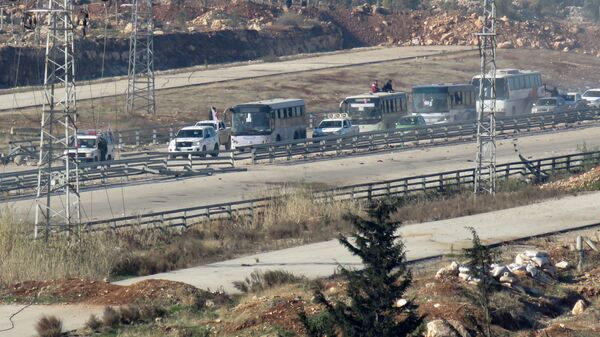
On December 22, last militants left eastern Aleppo, thus the Syrian army gained full control over the city. Syrian President Bashar Assad called the liberation of Aleppo a "watershed moment."

After the liberation of Aleppo, numerous reports of atrocities committed by militants in the eastern part of the city have been confirmed. The Syrian army found bodies of kids tortured to death by terrorists, while food suplies delivered by the Western countries in eastern Aleppo was consumed only by militants, while civilians starved.
Palmyra Victory and Sudden Daesh Offensive
During the invasion, the militants destroyed a number of ancient objects, including the necropolis, the Arch of Triumph, as well as the temples of Baal Shamin and Bel.
After the victory, Russia sent a demining squad to clear the ancient city from bombs. Some 19,000 explosives have been defused.

During 2016, Daesh several times attempted to regain control over Palmyra, however, the attacks were repelled by the government forces.
According to the Russian reconciliation center in Syria, Daesh managed to move considerable forces from Mosul in Iraq and the Syrian provinces Deir ez-Zor and Raqqa, where the United States-backed Syrian Democratic Forces (SDF) had stalled their planned attack on the group.
Terrorists began attacking the city on Saturday. Their offensive was thwarted by the actions of the government forces supported by Russian aviation.
Meanwhile, President Assad said that the timing of the attack correlated with Washington’s decision to lift restrictions on arms supplies to Syrian opposition groups.
On December 15, the Russian General Staff reported that the Syrian Army supported by Russian warplanes stopped the terrorists from further advancing in Palmyra.
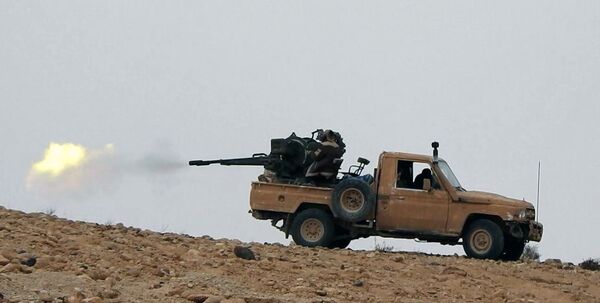
On Friday, Russian President Vladimir Putin commented on the Daesh offensive on Palmyra. According to the Russian leader, the situation in Palmyra was a result of discordant actions of different players in Syria.
"Everything that happens in Palmyra is the result of uncoordinated actions between the so-called international coalition, Syrian authorities and Russia," Putin said.
Deir Ez-Zor Attack on Syrian Army by US-Led Coalition Jets
On September 17, US-led coalition aircraft carried out four strikes against the Syrian army near the Deir ez-Zor airport, leaving 62 soldiers killed and some 100 wounded. The Pentagon said that the airstrike was a mistake and was intended to target Daesh militants, while a number of Syrian officials stated that the attack was intentional.
"In this incident, ultimately, we made an unintentional regrettable error primarily based on human factors in several areas in the targeting process," US Air Force Brig. Gen. Richard Coe told reporters during a press briefing.
The Pentagon also said that the US-led coalition's strikes on Syrian army positions would have continued if Russian military officials did not call their colleagues via a deconfliction channel. The deconfliction channel is part of a memorandum of understanding on safety of flights in Syria's airspace signed by the US Defense Department and Russian Ministry of Defense in October 2015.
Operation Euphrates Shield
This is the first Turkey's incursion into Syria, however, earlier Turkish forces attacked Kurdish positions in Syria from its side of the border.
The operation has been widely criticized both by the Syrian Kurds and Damascus, who have accused Ankara of violating Syria's territorial integrity.

As Jarabulus was retaken, the joint forces of Ankara, the coalition and Syrian rebels continued the offensive southwest.
On December 30, the Turkish General Staff said that Turkish forces have eliminated 1,171 militants from the Daesh terrorist group, as well as 291 militants from the Kurdistan Workers' Party (PKK) since the beginning of the Operation Euphrates Shield.
Turkish armed forces and allied Free Syrian Army (FSA) units are tightening their noose around the Daesh-held city of al-Bab. In an interview with Sputnik Turkey, FSA division commander Taha Atraç said that the city of al-Bab will be liberated "within the next few days."
Al-Bab is one of Daesh’s last remaining strongholds near the Turkish border. Capturing the city is of strategic importance to Turkey in order to prevent the Syrian Kurds taking it and unifying their own territories.
Nationwide Ceasefire in Syria Backed by Russia, Turkey
This is the first time Russia and Turkey, not the United States is the guarantor of rebels' abidance by the truce in Syria.
He also said that the maps included in the newly-announced Syrian ceasefire deal establish locations of the Jabhat Fatah al-Sham, formerly known as al-Nusra Front, and Syrian opposition groups.
It it yet to be seen how the ceasefire will hold in 2017, however, the very fact of the agreement gives hope that Syria will gradually finally return to peaceful life.

